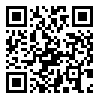مجله رویش روانشناسی از دادن گواهیهای کاغذی معذور است. لطفا تقاضا نکنید. همه گواهی ها در صفحه شخصی کاربران موجود است.
year 10, Issue 4 (Summer 2021 2021)
Rooyesh 2021, 10(4): 77-88 |
Back to browse issues page
Download citation:
BibTeX | RIS | EndNote | Medlars | ProCite | Reference Manager | RefWorks
Send citation to:



BibTeX | RIS | EndNote | Medlars | ProCite | Reference Manager | RefWorks
Send citation to:
Mikaeeli N, Moradikelardeh P. (2021). The Role of Ego Strengths and Difficulties in Emotion Regulation in predicting Non- Suicidal Self-Injury Behavior in Students. Rooyesh. 10(4), 77-88.
URL: http://frooyesh.ir/article-1-2548-en.html
URL: http://frooyesh.ir/article-1-2548-en.html
1- Professor of Psychology, Department of psychology, University of Mohaghegh Ardabili, Ardabil, Iran. , nmikaeili@yahoo.com
2- Ph.D student, Department of psychology, University of Mohaghegh Ardabili, Ardabil, Iran.
2- Ph.D student, Department of psychology, University of Mohaghegh Ardabili, Ardabil, Iran.
Abstract: (3132 Views)
The aim of this study was to investigate the relationship between Ego strengths and Difficulties in Emotion Regulation with Non- Suicidal Self Injury behaviors in high school students. This study is a cross-sectional descriptive correlational and its statistical population was all high school students in Ardabil, which 197 students (102 boys and 95 girls) from four high schools selected using multi-stage cluster sampling method. In order to collect data, psychosocial inventory of Ego strengths by Markstrom et al (1997), Difficulties in Emotion Regulation Scale by Gratz and Roemer (2004), and self-injury questionnaire by Sansone, Wiederman, and Sansone (1998) were used. After data collection, data were analyzed using, Pearson correlation test and stepwise regression. The results showed that self-injury behaviors have a significant negative relationship with components of hope, will, competence, and purpose of Ego strengths and have a significant positive relationship with components of rejection, difficulty in controlling, and lack of emotional awareness of difficulty in regulating emotion (p<0.01). Also, components of hope, competence, and purpose of Ego strengths and the component of difficulty in controlling Difficulties in Emotion Regulation were able to predict self-injury behaviors. Therefore, according to this result, ego strengths and Difficulties in Emotion Regulation are related to the possibility of self-injury behaviors and It is necessary to be considered in the development of intervention and prevention programs.
Keywords: non- suicidal self injury, ego strengths, self-control, difficulties in emotion regulation
Type of Article: Research |
Subject:
Clinical Psychology
Received: 2021/01/7 | Accepted: 2021/01/24 | ePublished: 2021/07/1
Received: 2021/01/7 | Accepted: 2021/01/24 | ePublished: 2021/07/1
Send email to the article author
| Rights and permissions | |
 |
This work is licensed under a Creative Commons Attribution-NonCommercial 4.0 International License. |







